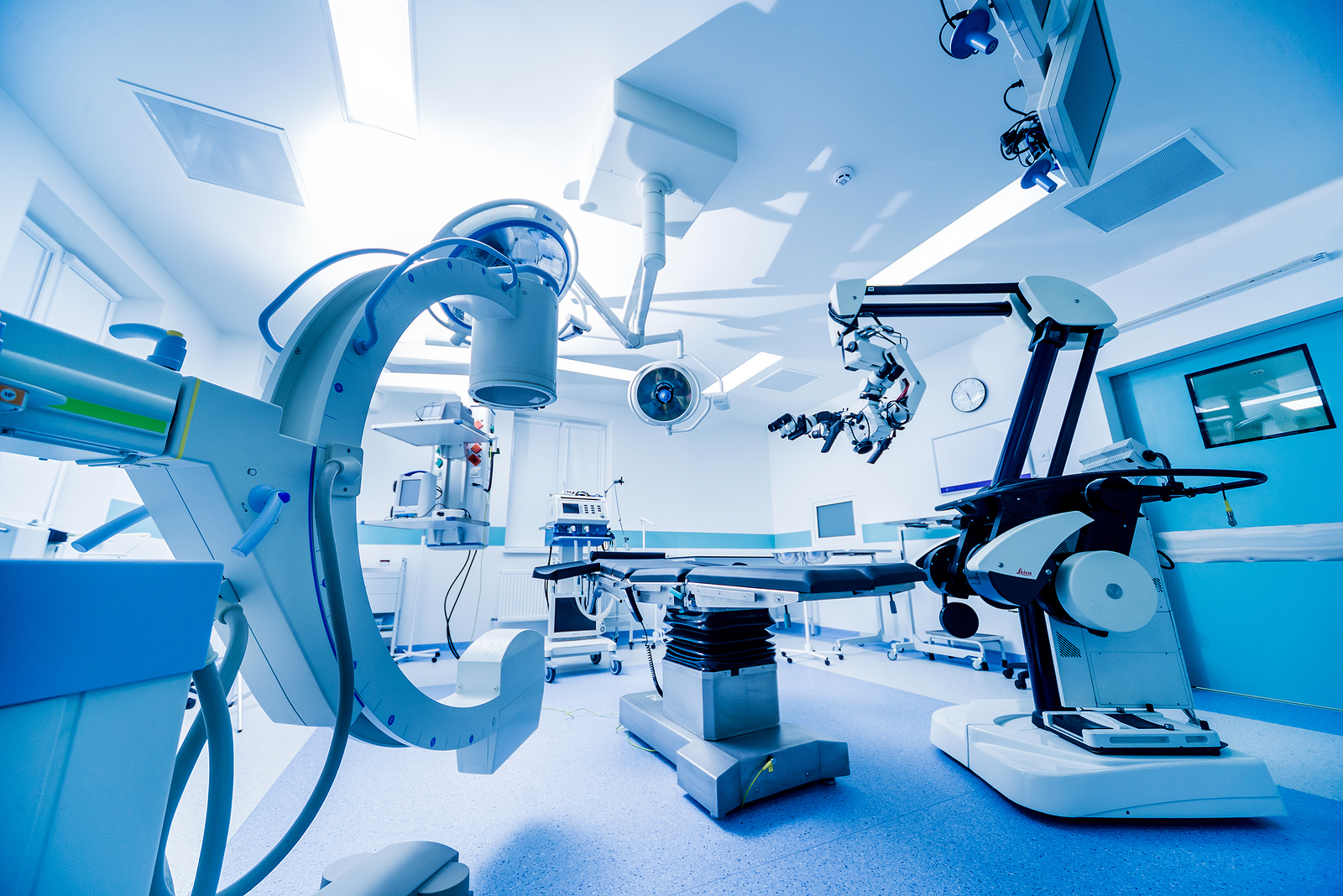- News ›
- When Is Neurosurgery Used To Treat Symptoms Of Vertigo?
When Is Neurosurgery Used To Treat Symptoms Of Vertigo?

There are certain conditions and symptoms which have a rather wide variety of causes and necessary treatments, which can vary from breath exercises and over-the-counter medication to neurosurgical treatments.
One example of this is vertigo, a dizzy sensation that can make people feel like they are spinning. It is not a condition by itself but instead is a symptom of several others, and treating it requires a doctor to identify the underlying cause.
This is why treatments for vertigo can sometimes involve doing nothing at all in some cases and may require emergency surgery in others.
To that end, there are some of the causes of vertigo that may require neurosurgery and how seeking expert advice can help.
Most people will have experienced vertigo at some point in their lives, and the signature symptoms of tinnitus, sickness and balance issues are related to a lot of conditions that affect the inner ear.
Whilst often associated with acrophobia, vertigo is seldom caused by heights, although the sense of disorientation caused by being at height can cause a form of vertigo in some people.
The most common cause of vertigo is benign paroxysmal positional vertigo (BPPV), a condition that itself has multiple causes which means that certain head movements can affect the inner ear and cause the characteristic spinning that leads to vertigo.
Similarly, vestibular neuritis or labyrinthitis is typically caused by a viral infection or much more rarely a bacterial infection, which would usually lead to a prescription of antihistamines or antibiotics.
In some cases, it is caused by Menaire’s Disease, an inner ear condition that can not only affect balance but can also cause hearing loss, pressure and pain in the ear.
It is typically diagnosed through a progressive process where they rule out increasingly common conditions.
This typically starts with hearing tests from an audiologist, but it can also include caloric testing with air, vestibular nerve stimulation, head impulse tests and imaging using MRI and CT scans.
This will usually shape treatment, and indeed if treatment is required.
In some cases, vertigo goes away on its own or is a recurring issue without any cure. In other cases, physical therapy or medication is the best option, or lifestyle changes to minimise attacks such as reducing alcohol and caffeine intake.
In some cases, BPPV can be treated using a simple head movement known as the Epley Manoeuvre, which moves canalith crystals out of the inner canals and reduces the effect of vertigo.
However, if none of these methods work, then surgery may be required. Here are the reasons why and what neurosurgery often entails.
An acoustic neuroma, also known as vestibular schwannoma, are benign non-cancerous tumours that affect the fatty Schwann cells often found on the outside of the vestibulocochlear nerve that connects the brain to the ear.
This nerve controls balance as well as hearing, and if the vertigo is connected to hearing loss or a feeling of stuffiness or fullness in the ear, then the cause could be a benign tumour that could be treated via surgery.
A vestibular schwannoma is a relatively rare tumour, comprising roughly eight per cent of all brain tumours.
In some cases, the tumour will simply be monitored, but if it is causing vertigo then it will likely require surgery, which can take a variety of forms.
Stereotactic radiosurgery using the gamma knife method might be an option in some cases, which uses a precise array of radiotherapy beams to target the tumour causing the issue and destroy it, which should relieve any symptoms related to the tumour.
This is ideal for small brain tumours but is not always an option. Alternatively, neurosurgery may be recommended if the surgery is believed to be effective in helping relieve the vertigo symptoms and provide a long-term cure.
Learn more about our advanced radiotherapy and neurosurgical treatments for vestibular schwannoma and other causes of vertigo on the Queen Square website.
One example of this is vertigo, a dizzy sensation that can make people feel like they are spinning. It is not a condition by itself but instead is a symptom of several others, and treating it requires a doctor to identify the underlying cause.
This is why treatments for vertigo can sometimes involve doing nothing at all in some cases and may require emergency surgery in others.
To that end, there are some of the causes of vertigo that may require neurosurgery and how seeking expert advice can help.
What Causes Vertigo?
Vertigo is a symptom or a state of perception rather than a condition in and of itself, which means that it can have a lot of different causes.Most people will have experienced vertigo at some point in their lives, and the signature symptoms of tinnitus, sickness and balance issues are related to a lot of conditions that affect the inner ear.
Whilst often associated with acrophobia, vertigo is seldom caused by heights, although the sense of disorientation caused by being at height can cause a form of vertigo in some people.
The most common cause of vertigo is benign paroxysmal positional vertigo (BPPV), a condition that itself has multiple causes which means that certain head movements can affect the inner ear and cause the characteristic spinning that leads to vertigo.
Similarly, vestibular neuritis or labyrinthitis is typically caused by a viral infection or much more rarely a bacterial infection, which would usually lead to a prescription of antihistamines or antibiotics.
In some cases, it is caused by Menaire’s Disease, an inner ear condition that can not only affect balance but can also cause hearing loss, pressure and pain in the ear.
How Is A Vertigo Cause Diagnosed?
It is typically diagnosed with the help of an ear, nose and throat doctor or a general practitioner, but can lead to a referral to a neurologist or neurosurgeon if they believe the cause would require surgical intervention to fix.It is typically diagnosed through a progressive process where they rule out increasingly common conditions.
This typically starts with hearing tests from an audiologist, but it can also include caloric testing with air, vestibular nerve stimulation, head impulse tests and imaging using MRI and CT scans.
This will usually shape treatment, and indeed if treatment is required.
In some cases, vertigo goes away on its own or is a recurring issue without any cure. In other cases, physical therapy or medication is the best option, or lifestyle changes to minimise attacks such as reducing alcohol and caffeine intake.
In some cases, BPPV can be treated using a simple head movement known as the Epley Manoeuvre, which moves canalith crystals out of the inner canals and reduces the effect of vertigo.
However, if none of these methods work, then surgery may be required. Here are the reasons why and what neurosurgery often entails.
When Is Surgery Required?
In some cases, the root cause of vertigo requires surgery to fix. This is often the case when vertigo is caused by a tumour such as acoustic neuroma or a more malignant brain tumour in its early stages.An acoustic neuroma, also known as vestibular schwannoma, are benign non-cancerous tumours that affect the fatty Schwann cells often found on the outside of the vestibulocochlear nerve that connects the brain to the ear.
This nerve controls balance as well as hearing, and if the vertigo is connected to hearing loss or a feeling of stuffiness or fullness in the ear, then the cause could be a benign tumour that could be treated via surgery.
A vestibular schwannoma is a relatively rare tumour, comprising roughly eight per cent of all brain tumours.
In some cases, the tumour will simply be monitored, but if it is causing vertigo then it will likely require surgery, which can take a variety of forms.
Stereotactic radiosurgery using the gamma knife method might be an option in some cases, which uses a precise array of radiotherapy beams to target the tumour causing the issue and destroy it, which should relieve any symptoms related to the tumour.
This is ideal for small brain tumours but is not always an option. Alternatively, neurosurgery may be recommended if the surgery is believed to be effective in helping relieve the vertigo symptoms and provide a long-term cure.
Learn more about our advanced radiotherapy and neurosurgical treatments for vestibular schwannoma and other causes of vertigo on the Queen Square website.

